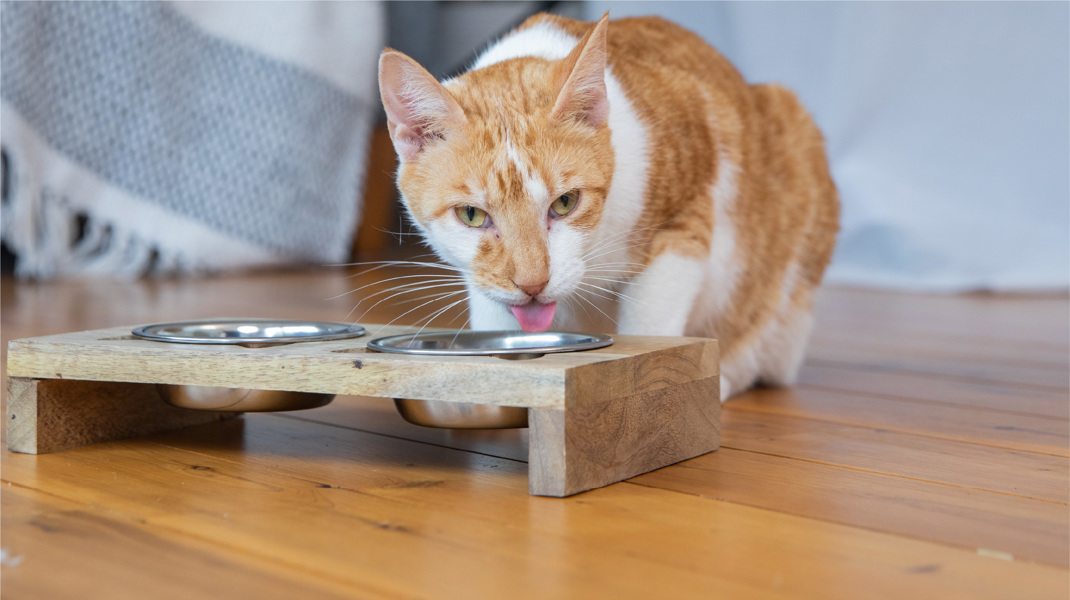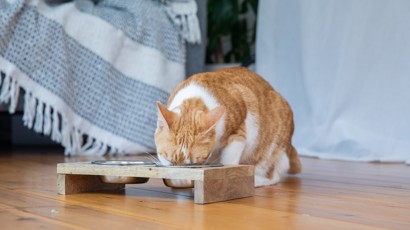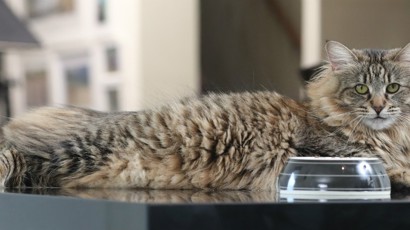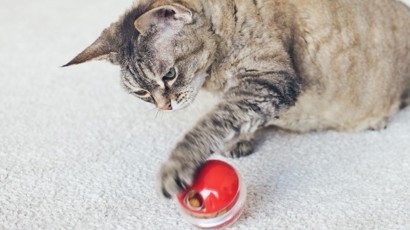Cats are Carnivores, so why are we Feeding them Carbs?

“Cats are NOT small dogs.”
… They’re a species of their own accord, their 38 chromosomes code for their unique anatomy, physiology, behaviour and all the other wonderful things that we love them for. We share our lives and homes with these majestic individuals for very different reasons than we do with dogs, and it’s best we recognise and respect this.
“Their nutritional needs are different.”
Cats are highly specialised ‘obligate’ carnivores. Unlike the dog, cats can’t survive on a purely natural vegetarian diet as they have a dietary requirement for specific amino acids (found in proteins) which are only found in other animals; their body can’t make those amino acids itself.
Studies have shown that cats are so clever and internally aware of their needs, that they will select foods based on the delivery of these specific proteins.
Their natural ‘drive to hunt’ is almost a protective mechanism against nutrient deficiencies that can occur if they’re fed a diet which doesn’t provide the full complement of amino acids.
“It’s all about their ancestors.”
Alongside specific amino acid requirements, the overall levels of protein that cats need to live on a day-to-day basis are higher than what’s needed by dogs. They need approximately 40% more dietary protein than the dog (on a calorie-by-calorie basis). This is due to the high-meat diet that early cats once ate, meaning that their metabolism has adapted to use protein as a primary energy source.
The digestive processes that break down proteins are ‘always on’, meaning that even if faced with low supplies, the obligate carnivore’s body will keep searching for it and body stores of protein (that is, their muscles) are at risk of being broken down in this scenario. This means that cats are more vulnerable to conditions where they waste away, particularly if not eating healthily.
“Don’t feed cats dog food.”
It’s because of these nutritional needs that the rule book of how to create a balanced cat food is different to the rule book for dogs. It’s no great bother if cats eat dog food on the odd occasion (for a meal or two), but over a long period of time deficiencies will occur, and they have serious health consequences. Be sure to shop in the right aisle in the pet food section.
“This doesn’t mean that carbohydrates are ‘the bad guy’ for cats.”
Regardless of the above ‘protein drivers’, carbohydrate has always been part of their natural diet, and has become increasingly so throughout the domestication process.
There’s a giant leap from wildcat ancestors to the cat resting in your lap, and while cats don’t have an essential need for dietary carbohydrate, they can confidently break these plant ingredients down in the small intestine.
Carbohydrates are particularly useful in times of high energy need, when pregnant for example. Complex carbohydrates (also known as fibre) are also great at moderating intestinal function, including improving the physical passage of food through the gut, faecal pH, microbiome and intestinal water absorption (meaning better stool quality), when fed.
“It’s all about balance, and choosing a quality diet.”
We all want to get feeding right, and that’s why selecting a cat food from a good manufacturer that knows their stuff when it comes to creating a recipe and finished product is so important. Taking just the right measures of very select ingredients is what it’s about.
Whether it be chicken, fish, kangaroo, chicken liver, eggs or fish oil, each ingredient should deliver precisely the nutrients that they need. Above and beyond that, they should interact with each other in your cat’s digestive system to maximise absorption, minimise diet-related health issues AND on top of that, continue being irresistible to your cat.
This is the challenge that Black Hawk looks to take up, and we hope you and your cat are happy to put our products to the test.
If you would like to know more about our products, have any feedback or have any questions about your cat and their nutritional needs, the Black Hawk team can be contacted online, or via customer.service@masterpet.com or ph 1300 651 111 (AUS) / 0800 738 546 (NZ).



